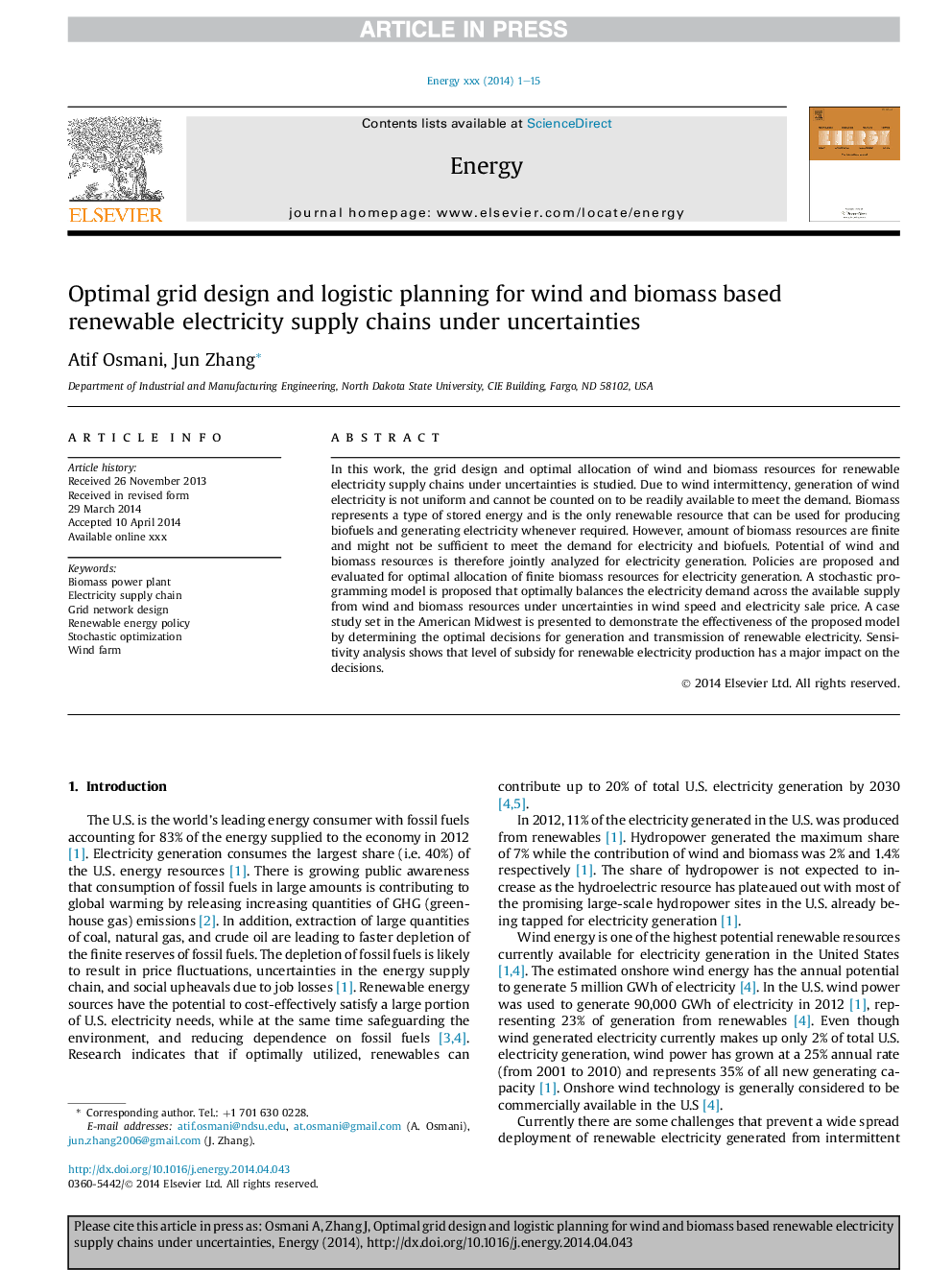| Article ID | Journal | Published Year | Pages | File Type |
|---|---|---|---|---|
| 8077821 | Energy | 2014 | 15 Pages |
Abstract
In this work, the grid design and optimal allocation of wind and biomass resources for renewable electricity supply chains under uncertainties is studied. Due to wind intermittency, generation of wind electricity is not uniform and cannot be counted on to be readily available to meet the demand. Biomass represents a type of stored energy and is the only renewable resource that can be used for producing biofuels and generating electricity whenever required. However, amount of biomass resources are finite and might not be sufficient to meet the demand for electricity and biofuels. Potential of wind and biomass resources is therefore jointly analyzed for electricity generation. Policies are proposed and evaluated for optimal allocation of finite biomass resources for electricity generation. A stochastic programming model is proposed that optimally balances the electricity demand across the available supply from wind and biomass resources under uncertainties in wind speed and electricity sale price. A case study set in the American Midwest is presented to demonstrate the effectiveness of the proposed model by determining the optimal decisions for generation and transmission of renewable electricity. Sensitivity analysis shows that level of subsidy for renewable electricity production has a major impact on the decisions.
Related Topics
Physical Sciences and Engineering
Energy
Energy (General)
Authors
Atif Osmani, Jun Zhang,
